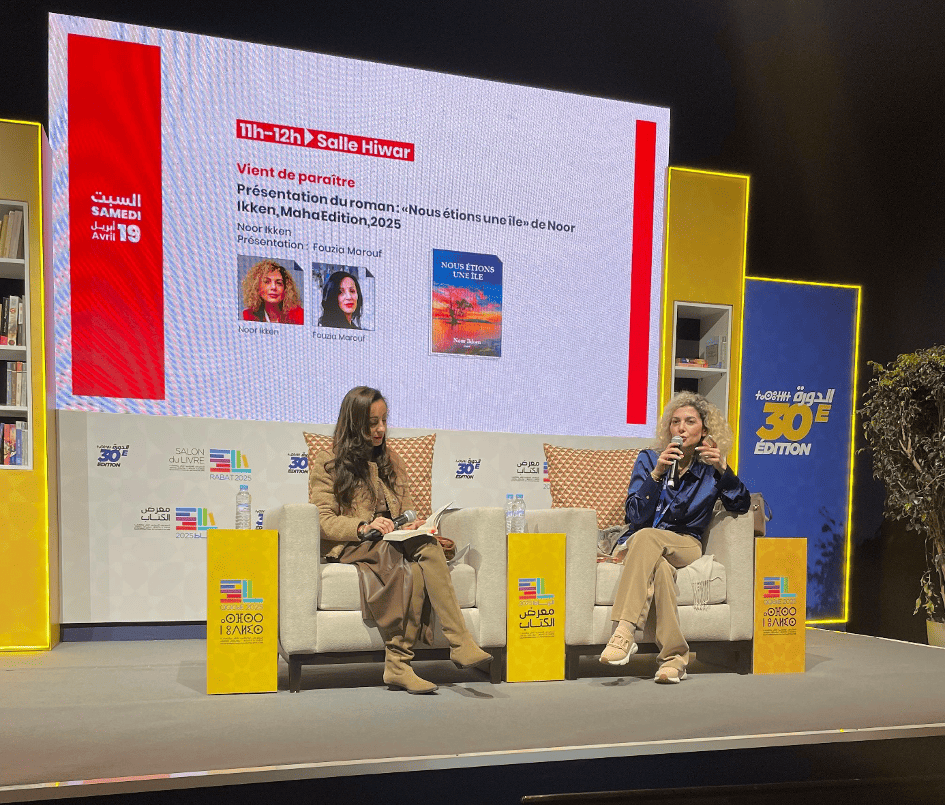
On the second day of the Book and Publishing Fair (SIEL), in its 30th edition, a touching literary moment took place in the Salle Hiwar. Noor Ikken presented her new novel, “Nous étions une île” (We Were an Island), published by Maha Editions. Introduced by Fouzia Marouf, the event marked the return of the author, following the success of her debut novel, Le Premier Été (The First Summer).

On the second day of the Book and Publishing Fair (SIEL), in its 30th edition, a touching literary moment took place in the Salle Hiwar. Noor Ikken presented her new novel, “Nous étions une île” (We Were an Island), published by Maha Editions. Introduced by Fouzia Marouf, the event marked the return of the author, following the success of her debut novel, Le Premier Été (The First Summer).

On the second day of the Book and Publishing Fair (SIEL), in its 30th edition, a touching literary moment took place in the Salle Hiwar. Noor Ikken presented her new novel, “Nous étions une île” (We Were an Island), published by Maha Editions. Introduced by Fouzia Marouf, the event marked the return of the author, following the success of her debut novel, Le Premier Été (The First Summer).
Set in 1980s Morocco, the novel tells the story of Tanya, known as Tanina, a courageous teenager whose first encounter with love is as beautiful as it is tragic. She falls for Raphaël, a young “nassrani” (Christian boy), an impossible love marked from the start by social constraints and cultural taboos. Their story is not simply about youthful passion, but about awakening: to desire, to the self, and to the quiet violence of being told that love is not hers to have.
Even as she grows older and builds a new life in New York, Tanya remains haunted by the heartbreak of that first love, its emotional echoes refusing to fade. Noor Ikken explores the lingering consequences of that rupture, suggesting that some wounds, though invisible, never truly heal.
The novel pays homage to the literary and theatrical world through symbolic moments, such as a play staged at a high school, reminiscent of Jean Anouilh’s “Le Voyageur sans baggage”. These moments act as a form of “invisible theater,” where young characters, like Tanya’s cousin Nora, explore rebellion, art, and identity behind the masks of performance.
“Nous étions une île” is also a tale of transmission, of unspoken pain and inherited strength. The novel’s landscape is filled with grandmothers, aunts, cousins, and adolescent girls, each carrying their own baggage, emotional, cultural, and generational.
What begins as a forbidden love story becomes something larger: a meditation on womanhood, tradition, and the elusive nature of freedom.
